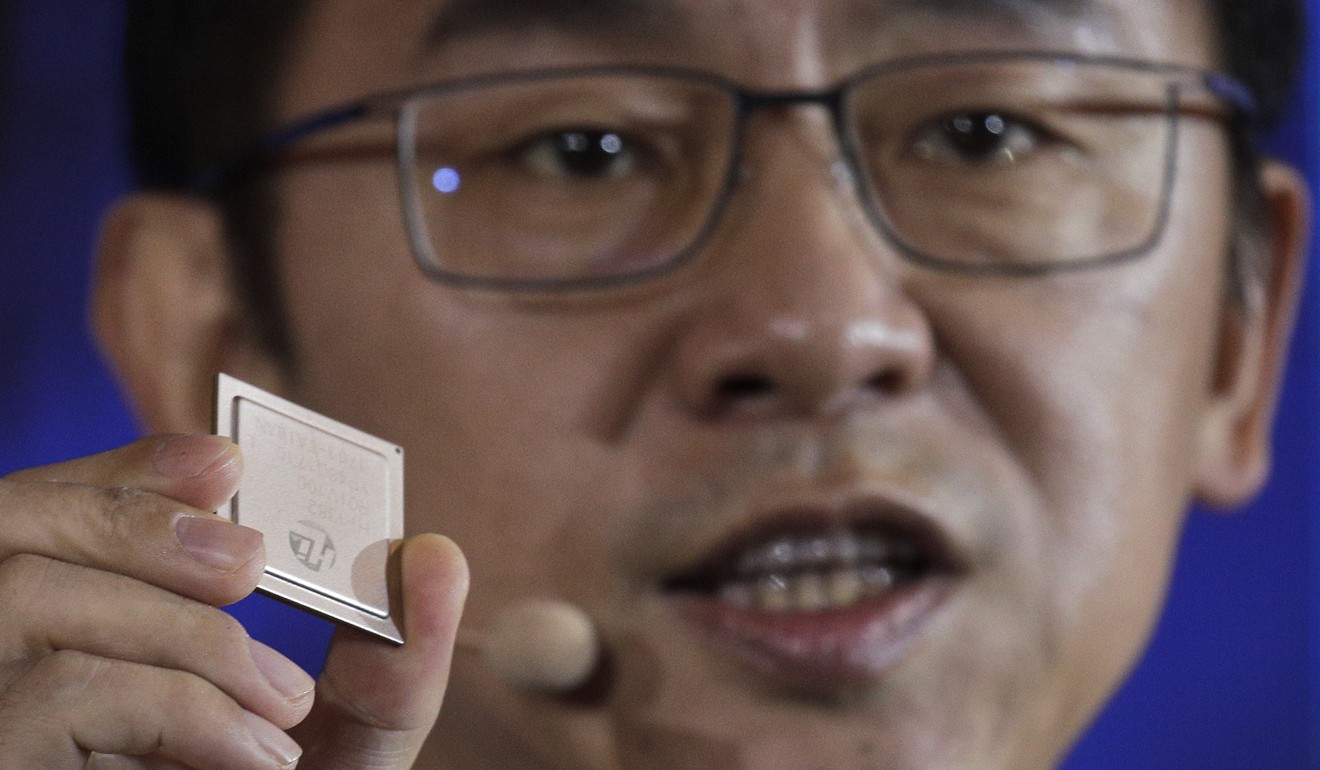
We need to talk about Huawei: Europe debates ban on Chinese tech giant over fears of back doors in 5G networks
- Countries weigh risk of Beijing building back doors into European 5G networks but telecom firms urge restraint
The debate over what to do about Huawei has intensified across Europe, as companies and governments draft plans to tackle alleged security threats posed by Chinese technology firms.
But while European Union officials, and some member states, have heeded US warnings that Huawei may be a back door for Chinese spying on the West, major European telecoms firms reliant on the company’s products have called for caution on banning Chinese suppliers.
According to one European diplomat, Europeans had once been comfortable sharing technology with a much less-advanced China but had grown wary in recent decades as the country rapidly honed its technological edge.
This is particularly the case in 5G telecommunications, where Chinese tech giants such as Huawei are contending to supply infrastructure.
The source said Germany was one of several European countries still weighing whether to ban Chinese companies from telecom development, as more EU countries set high bars on Chinese suppliers.
On Thursday, four senior EU officials said the EU was assessing proposals that would amount to a de facto ban on Huawei for next-generation mobile networks.
According to Reuters, the European Commission was considering an amendment to a 2016 cybersecurity law, which requires businesses involved in critical infrastructure to take appropriate security measures. Other changes to procurement rules are also on the table.
Huawei ‘distrust’ and ‘irrational’ US trade war slammed by leading Chinese academic
The EU is concerned that Huawei could be asked by the Chinese government to incorporate back doors into their equipment that would allow Beijing to spy on or sabotage overseas targets, especially now that Chinese intelligence and security laws demand companies and citizens be willing to collaborate with the national intelligence agencies.
In a sign of that concern, the Czech government last week excluded Huawei from a bid to build a national online system for filing tax returns.
But European telecom companies are wary of blanket ban on Chinese involvement.
Deutsche Telekom, Europe’s biggest telecommunications company, said a ban on Huawei equipment would delay the establishment of 5G in Europe by at least two years, putting it behind both the United States and China.
On Wednesday, the German firm released plans that it said would allow European networks to safely incorporate equipment from Chinese suppliers. It also suggested technical measures to let governments and independent third parties address security vulnerabilities.
Vodafone chief executive Nick Read said the company would stop using Huawei technology in its core network in Europe, but if Huawei equipment could not be used in radio access networks, costs for businesses and consumers would increase considerably.
Read also said many of the assessments about Huawei were not “clear enough and fact based”.
Tim Rühlig, an analyst of EU-China relations at the Swedish Institute of International Affairs, said Europe was deeply integrated into both the US and Chinese economies, and was struggling to find its own way between the growing US-China rivalry.
“What we witness is an emerging tech confrontation between the US and China. The world might end up with a divided tech world – one Chinese-run and another non-Chinese run. At this moment, both US and China perceive the conflict over 5G infrastructure as a matter of geopolitics,” Rühlig said.

He said Europe was in an awkward position, with both China and the United States wanting it to take sides.
“[But] Europe could end up in a situation when both sides actively campaign for Europe’s support. This could leave Europe in a rather advantageous position,” he said.
A spokesman for Huawei operations in Europe said the company had a strong and consolidated presence on the continent.
“Huawei has been operating in Europe for nearly 20 years now. We are here to stay. Huawei is an integral part of Europe’s digital transformation. We are definitely part of the solution,” he said.
The issue has clearly been on the agenda for Chinese diplomats in Europe.
Why China feels it has little to gain from linking Huawei case to latest US trade war talks
Wrapping up a trip last week, Chinese Foreign Minister Wang Yi said Italy and France were open for Chinese investment and would not discriminate against any Chinese company.
And Zhang Ming, China’s ambassador to the EU, said banning Huawei from European 5G projects would risk “serious consequences” for global economic and scientific cooperation.
Observers said European bans could mean less investment.
Jiang Shixue, a professor of international relations at Shanghai University, said there was little China could do to “persuade the US, or Europeans, to change their views about the technology”.
But if Europe curbed access, Chinese technology firms could turn to fast-growing markets elsewhere, Jiang said: “If Europe doesn’t use it, somebody else will.”
Additional reporting by Bloomberg and The Guardian


